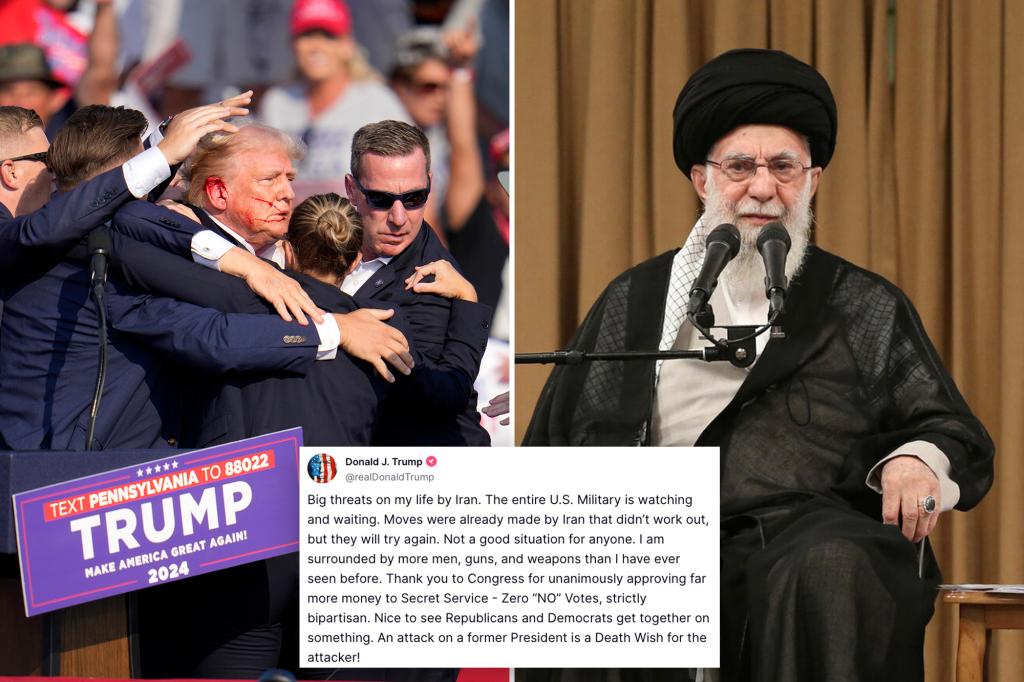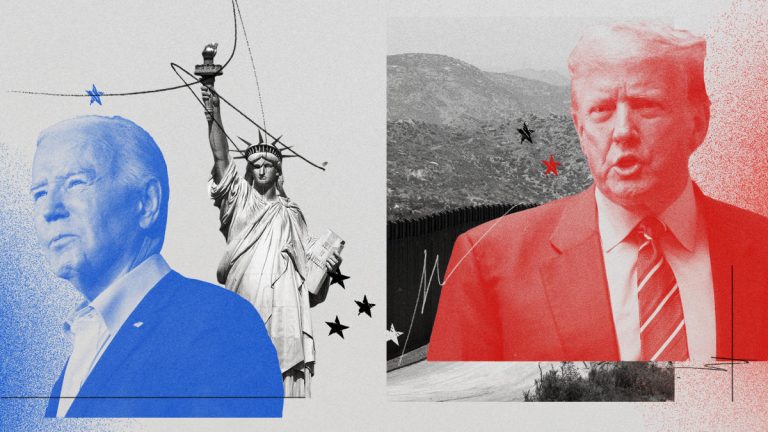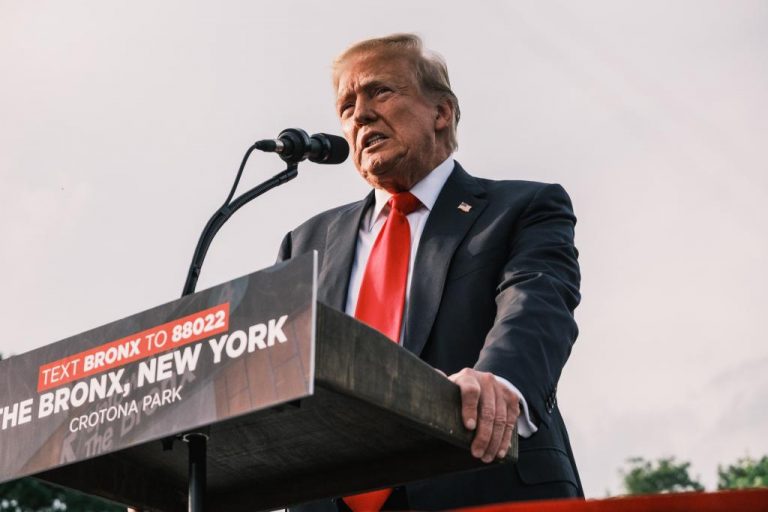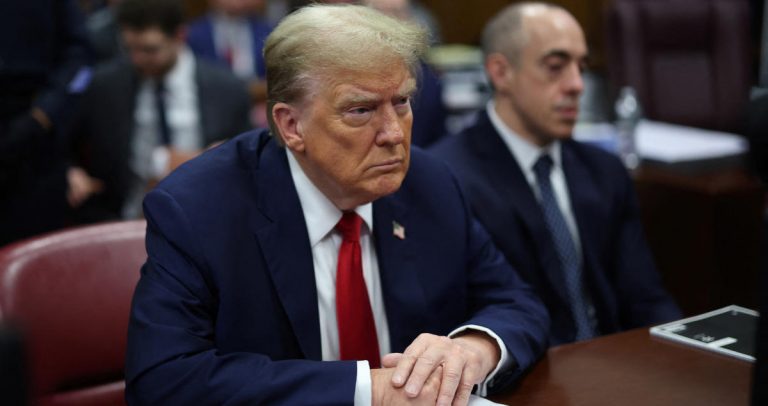Trump claims Iran tried to kill him, but failed, and he’s heavily protected with more guns than ever.
President Donald Trump recently made shocking claims about Iran’s alleged attempts on his life, revealing that there have been unsuccessful attacks on him in the past. During a recent interview, Trump disclosed that Iran has made several unsuccessful assassination attempts on him, implying that he is currently at risk due to his hardline stance against the country.
Trump further emphasized the level of security measures around him, stating that he is surrounded by “more guns” than he has ever seen. This revelation comes amidst escalating tensions between the United States and Iran, with both countries engaging in hostile rhetoric and actions.
The President’s claims have sparked concerns about his safety and the implications for US-Iran relations. Trump’s confrontational approach towards Iran has been a defining feature of his foreign policy, with his administration imposing harsh sanctions on the country and withdrawing from the Iran nuclear deal.
With the recent assassination of a top Iranian general, Qasem Soleimani, by US forces, the situation between the two nations has become increasingly volatile. Iran has vowed to retaliate and has threatened to target American officials in response to Soleimani’s killing.
Trump’s revelation about assassination attempts raises questions about the effectiveness of the security measures in place to protect him. The President’s personal security detail is tasked with ensuring his safety at all times and preventing any harm from befalling him.
However, the heightened tensions with Iran have raised concerns about the possibility of further attacks on the President. The Secret Service, responsible for protecting the President, is facing increased pressure to enhance their security protocols and prevent any potential threats from materializing.
The President’s claims about Iran’s attempts on his life have also drawn attention to the broader issue of diplomatic relations between the two countries. The US and Iran have a long history of animosity, with both nations engaging in proxy conflicts and supporting opposing factions in the Middle East.
Trump’s tough stance on Iran has been a point of contention, with critics accusing him of escalating tensions and risking a potentially disastrous conflict. The President’s recent remarks about assassination attempts have only added to the growing sense of unease and uncertainty surrounding US-Iran relations.
As the situation continues to escalate, the international community is watching closely to see how the US and Iran navigate their fraught relationship. The ongoing tensions and threats of violence have raised concerns about the potential for a larger conflict that could have far-reaching consequences for the region and beyond.
Ultimately, Trump’s claims about Iran’s attempts on his life underscore the complex and volatile nature of international politics. The President’s safety and the implications for US foreign policy are at the forefront of discussions as the standoff between the two nations shows no sign of abating.
With security concerns mounting and the risk of further violence looming, the need for diplomatic solutions and de-escalation measures has never been more urgent. The stakes are high, and the world is watching as the US and Iran navigate this precarious and potentially perilous situation.








